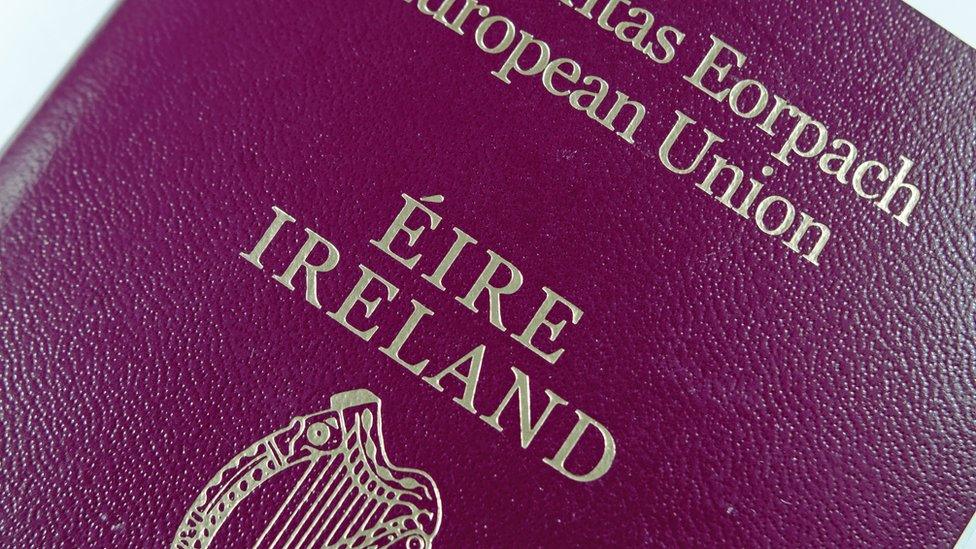UK 'must find Irish border solution' - Guy Verhofstadt
- Published
- comments
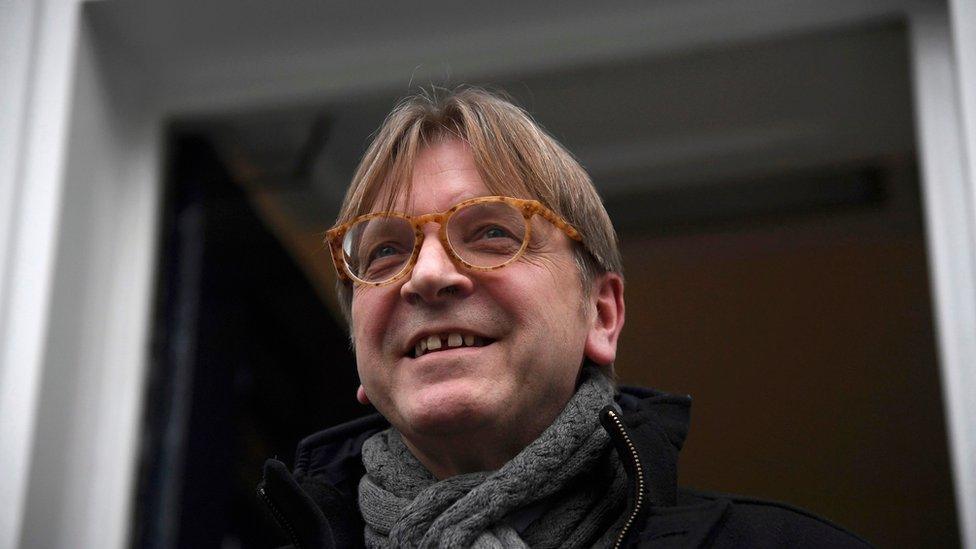
Guy Verhofstadt is the link between EU negotiators and MEPs
The European Parliament's Brexit negotiator, Guy Verhofstadt, has said it is up to the UK to find a way to avoid new controls on the Irish border.
This echoes the position already laid out by the EU's chief negotiator, Michel Barnier.
Mr Verhofstadt is in Northern Ireland to meet political leaders at Stormont ahead of a visit to the Irish border.
He will also meet business and community leaders in the Armagh-Monaghan border area.
Mr Verhofstadt is the link between EU negotiators and MEPs.
One road crosses the border four times in 10 minutes
Although he is not directly involved in the Brexit negotiations, any deal between the EU and UK will need to be approved by the European Parliament.
The former Belgian prime minister is on a two-day visit to Ireland: He is set to meet Irish Prime Minister Leo Varadkar and address a joint committee of the Irish Parliament on Thursday.
Speaking in the Dáil (Irish parliament) on Wednesday, Mr Varadkar said it would be "useful" if the Northern Ireland Executive and Assembly were to meet and say they did not want a trade border, rather than leave it for politicians in London to speak for them.
Allow X content?
This article contains content provided by X. We ask for your permission before anything is loaded, as they may be using cookies and other technologies. You may want to read X’s cookie policy, external and privacy policy, external before accepting. To view this content choose ‘accept and continue’.
"The resurrection of the border problem is the consequence of the decision of Britain to leave the union," said Mr Verhofstadt.
"So it is their responsibility to come forward with solutions."
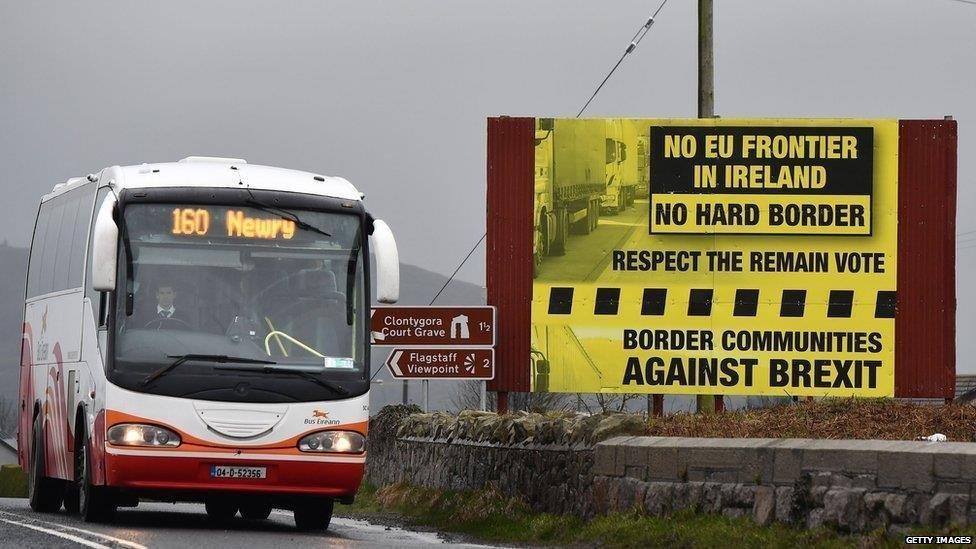
Mr Verhofstadt will meet community leaders along the border
He said he had heard it suggested that Northern Ireland could remain part of the single market and the customs union and the problem would be solved.
"But the point is the UK government has to come forward with a proposal that solves the problem," he added.
Brian Renaghan's farm is split in two by the Irish border
Mr Verhofstadt also discussed his proposal that people from Northern Ireland could elect MEPs in the Republic of Ireland after Brexit.
People born in Northern Ireland are entitled to Irish - and hence EU - citizenship.
Mr Verhofstadt said there was a "fair question" about how those people would continue to participate in EU democracy.
The DUP has rejected his idea, which was also met with scepticism when he raised it in a European parliamentary committee earlier this year.
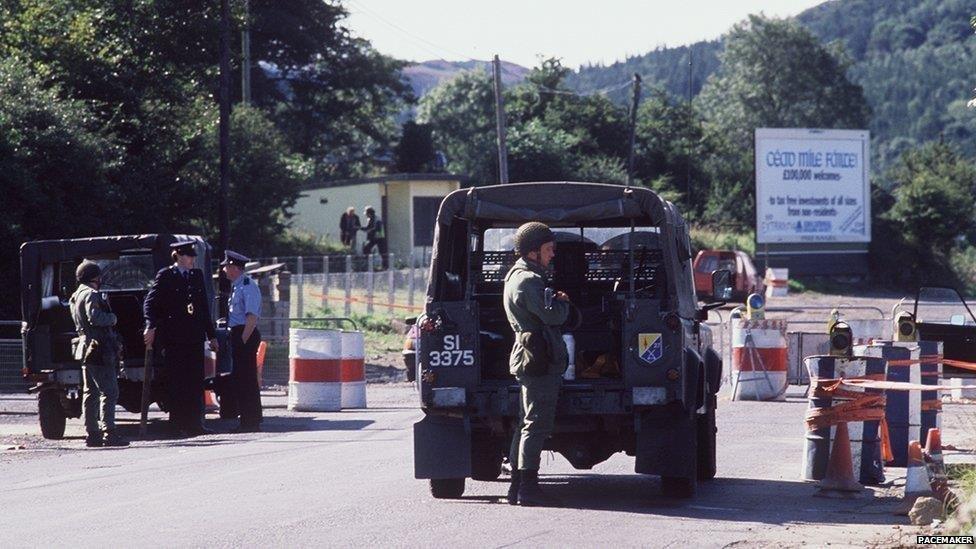
Irish army and police patrolling the border during the Troubles
He said: "With every proposal there is scepticism, that's normal in politics, but we are debating it."
The MEP's visit comes ahead of next month's crucial summit in Brussels when leaders of the EU 27 will decide whether sufficient progress has been made in the first phase of negotiations to allow them to focus on future trading relations.
Speaking after her party's meeting with Mr Verhofstadt, Sinn Féin's Stormont leader Michelle O'Neill said he would see for himself the "major, catastrophic impact Brexit will have here".
Mrs O'Neill said they had a constructive meeting, adding: "I do find him an understanding man."
Democratic Unionist MEP Diane Dodds said her party wanted a "seamless" border, but rejected the suggestion that Northern Ireland could remain in the single market, or customs union.
"We will not countenance a solution that makes us different from other parts of the United Kingdom," said Mrs Dodds.
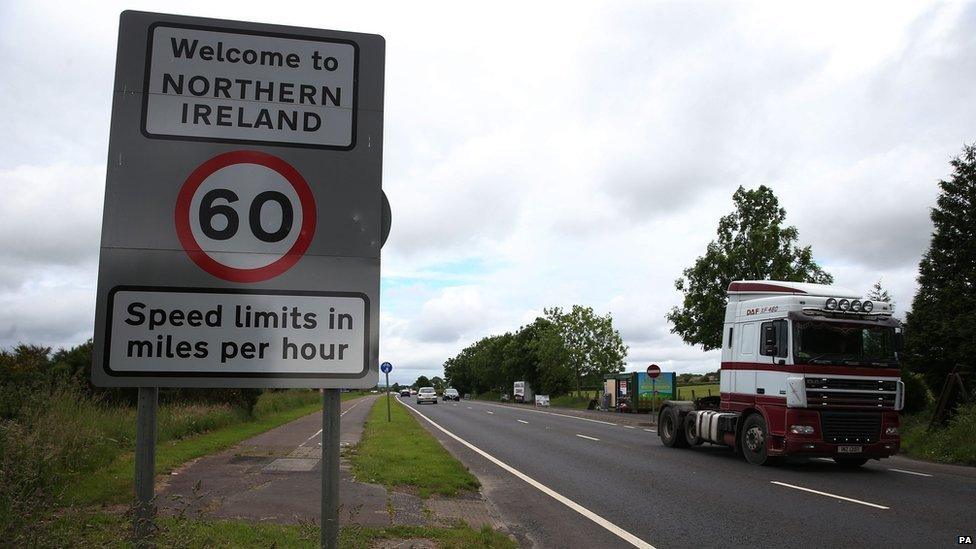
The DUP says it wants to see a "seamless" border
Ulster Unionist leader Robin Swann said he had told Mr Verhofstadt that it was "a shame and a disgrace" parties were meeting him individually, in the absence of a power-sharing executive representing Northern Ireland.
He criticised the EU for "their intensity and their fixation to sort out the UK's financial contribution to the EU".
SDLP leader Colum Eastwood said Mr Verhofstadt understood the need to accommodate the "unique circumstances" of Northern Ireland.
He said the EU Parliament representative had described it as "madness" that Northern Ireland was trying to make a special case when there was no government in place in Stormont.
Allliance deputy leader Stephen Farry said his party wanted Northern Ireland to stay in the single market.
He said this would entail "some sort of regulatory border" with the rest of the UK, and the retention of freedom of movement with EU countries.
Transitional period
Mr Verhofstadt said earlier he did not want to speculate on reports that Theresa May was to use a keynote Brexit speech to offer to pay €20bn (£18bn) into the EU budget during a two-year transitional period.
The Prime Minister is travelling to Italy to make a speech on Brexit, ahead of round of negotiations next week.
He said he hoped there would be a break-through on the financial settlement issue, and that it would be positive if the UK government started to discuss a figure.
The parliament's resolution on Brexit states that it is "especially concerned" by the impact on Northern Ireland and that is "crucial" to preserve the 1998 Good Friday Agreement in all its parts.
Mr Verhofstadt has previously said: "We will never accept a hard border again between Northern Ireland and the Irish Republic."
Last month, he dismissed the UK's proposals for its future customs relationship with the European Union as "a fantasy".
The UK has said it will leave the customs union - the EU's tariff-free trading area - after Brexit.

The government has repeatedly said it does not want to go back to the borders of the past
It has proposed an "innovative and untested approach" that would remove the need for any customs checks between the UK and the EU.
An alternative proposal involves a "highly streamlined arrangement" which would mean small businesses trading across the Irish border, avoiding any new tariffs or paperwork.
Both proposals have been met with a sceptical response by other EU leaders.
- Published16 August 2017
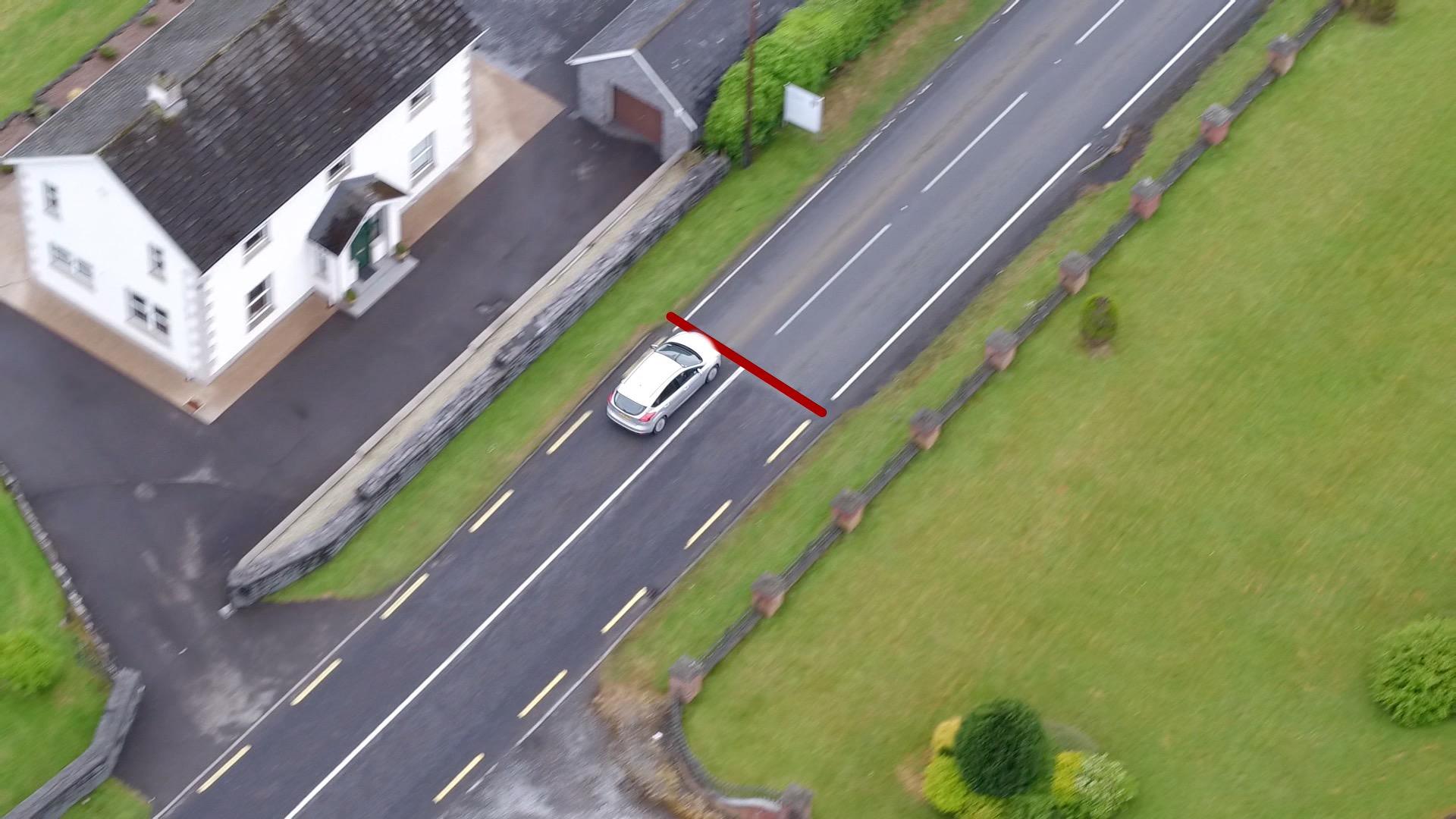
- Published10 March 2017
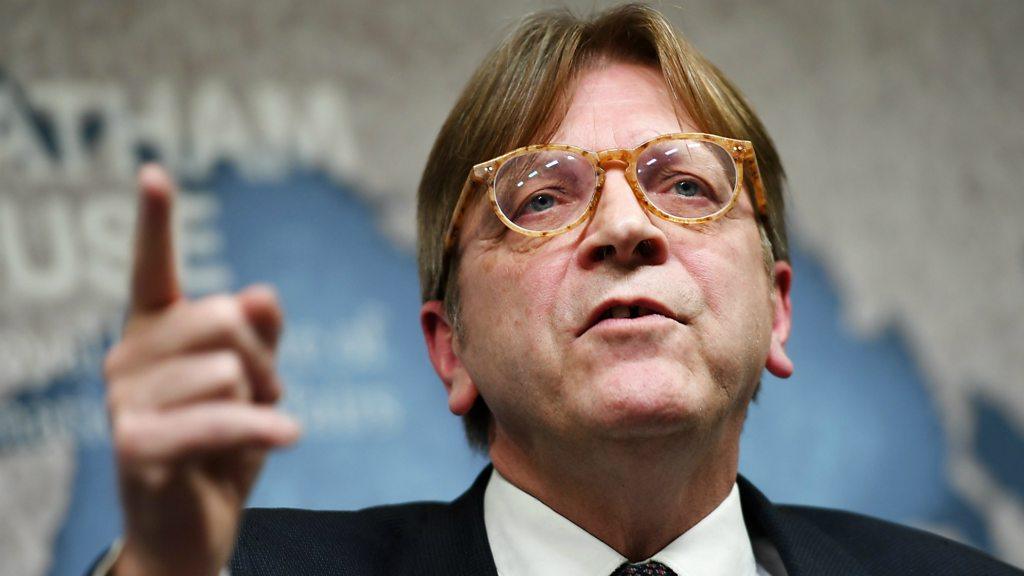
- Published12 July 2017
